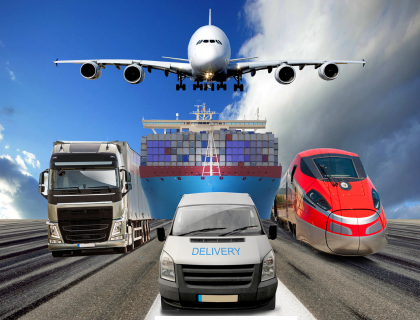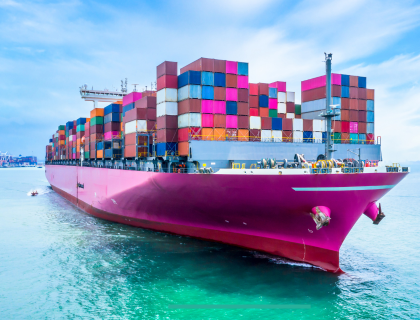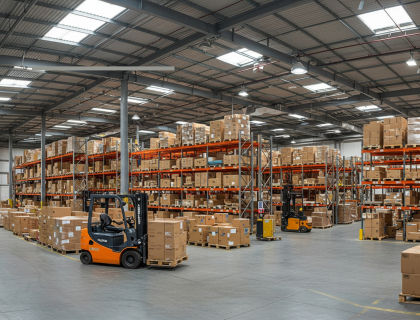In the complex world of global trade, the choice of transportation mode is one of the most critical decisions for businesses. The efficiency, cost, and reliability of logistics operations depend largely on whether a company selects air freight, sea freight, road transport, or rail. Each mode of transport has unique characteristics, advantages, and limitations, and making the right choice requires balancing multiple factors such as delivery time, budget, type of goods, and market requirements.
Air freight remains the fastest way to transport goods across international borders. For businesses dealing with high-value products, urgent shipments, or perishable items, air cargo is often the most reliable solution. In 2025, air freight is increasingly supported by digital tracking systems, advanced cold chain technologies, and streamlined customs procedures at major airports. However, this speed comes with a high price tag. Air transport is significantly more expensive than other modes, and its environmental impact is among the highest. Companies usually reserve this option for shipments where time is the decisive factor, such as pharmaceuticals, electronics, fashion items, or critical spare parts.
Sea freight continues to dominate global logistics in terms of volume. Over 80% of international trade is carried by ocean vessels, making maritime transport the backbone of global commerce. Container ships allow businesses to move large quantities of goods at relatively low cost, and new megaships can carry tens of thousands of containers in a single journey. Sustainability improvements are also shaping the industry, with LNG-powered vessels and green corridors becoming more common. Yet, sea freight has its downsides: transit times are long, routes can be disrupted by geopolitical tensions, and ports often suffer from congestion. Despite these challenges, maritime shipping remains the most economical option for bulky, heavy, or non-urgent goods such as raw materials, industrial equipment, and consumer goods.
Road transport plays a vital role in both domestic and international logistics. Trucks are highly flexible, capable of delivering goods directly from supplier to customer without the need for intermediate handling. Cross-border trucking within regions such as the European Union is particularly efficient due to harmonized regulations and integrated infrastructure. For shorter distances, road transport offers an ideal balance between cost and speed. However, trucking is subject to challenges such as traffic congestion, driver shortages, and fluctuating fuel costs. Additionally, road transport faces environmental scrutiny, which is pushing the industry towards electric and hydrogen-powered trucks. For many businesses, road freight is used in combination with other modes of transport, serving as a crucial link in multimodal logistics solutions.
Rail transport is experiencing a renaissance, particularly along routes connecting Europe and Asia. The expansion of the Belt and Road Initiative has increased the importance of rail freight as a middle ground between air and sea transport. Rail offers faster delivery times than ocean shipping and lower costs than air freight, making it attractive for businesses seeking balance. It is particularly well-suited for heavy, non-perishable goods, including machinery, automotive parts, and electronics. Rail is also considered one of the most sustainable forms of long-distance transport, with lower carbon emissions compared to trucks and planes. Nevertheless, rail networks are not universally available, and cross-border rail transport can involve complex coordination between different national systems.
Choosing the right mode of transport involves analyzing several key factors. The first is urgency: if delivery speed is the priority, air freight is the clear winner. If cost-efficiency is the main driver, sea freight usually comes out on top. For regional or last-mile deliveries, road transport provides unmatched flexibility, while rail offers a sustainable and cost-effective alternative for certain routes. The second factor is the type of cargo. Fragile, perishable, or high-value goods require specialized solutions such as temperature control or extra security, which may influence the choice of transport. The third factor is geography: some regions are better served by specific modes, depending on infrastructure, political stability, and customs procedures.
Another crucial consideration is sustainability. With rising environmental awareness and stricter regulations, businesses are increasingly factoring carbon footprints into their logistics decisions. Multimodal solutions – combining sea and rail, or air and road – are gaining popularity as they balance speed, cost, and environmental impact. For example, companies may ship goods by sea to a major hub port and then transfer them to rail for inland distribution, reducing emissions and improving efficiency.
In addition, the availability of advanced logistics technology is transforming how companies make transport decisions. Predictive analytics, AI-driven route optimization, and digital freight marketplaces allow businesses to compare different transport options in real time. This data-driven approach helps companies identify the best mode not only based on traditional factors but also on dynamic conditions such as port congestion, weather disruptions, or fuel price fluctuations.
Ultimately, there is no universal answer to which mode of transport is the best. The optimal choice depends on the unique needs of each shipment and the overall logistics strategy of the company. The most successful businesses are those that adopt a flexible, multimodal approach, leveraging the strengths of different transport modes while minimizing their weaknesses. By combining cost-efficiency, speed, reliability, and sustainability, they can build resilient supply chains that withstand the uncertainties of global trade.
In 2025, the challenge for businesses is not simply to move goods from point A to point B. It is about choosing the smartest, most efficient, and most sustainable way to do so. Air, sea, road, and rail each have a role to play, and the companies that master this balance will be best positioned to compete in an increasingly interconnected global marketplace.




